Early on the morning of April 18th an article by the BBC’s international and Middle East editor appeared on the BBC News website’s ‘Middle East’ page under the headline ‘Jeremy Bowen: Israel’s unclear road ahead’.
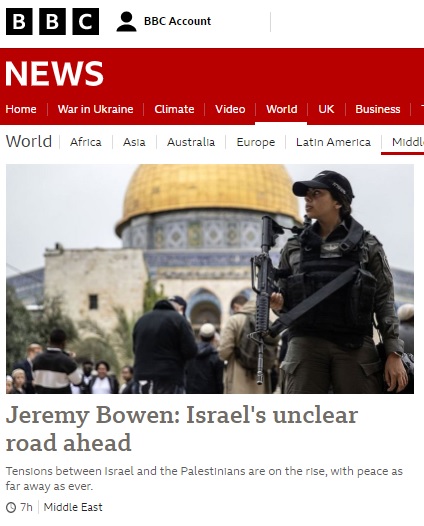
That headline, along with two inaccurate photo captions, was later amended and the current headline reads “Israel and Palestinians: Gulf between hope and reality of peace”.
The opening line of that article by Jeremy Bowen captures its concept in a nutshell:
“Tensions between Israel and the Palestinians are on the rise once more, with hopes of peace and a two-state solution as far away as ever.”
However Bowen’s explanation of the background to those “tensions” and the reasons why “hopes” are “as far away as ever” is glaringly one-sided, facile and makes no attempt to inform BBC audiences of all the factors at play.
Bowen begins by citing religion and nationalism but fails to note that such elements were evident long before there was such a thing as “Israeli nationalism” – for example in 1920 and 1929.
“Religion has a significance and power here that is hard to exaggerate. That is because it is about more than just faith. In Jerusalem it is linked inextricably with Palestinian and Israeli nationalism. Religion, politics and identity feed off each other. The rivals venerate the sanctity of Jerusalem and claim it as their capital.”
Readers are not informed that under the terms of the League of Nations Mandate for Palestine, Jerusalem was in the territory allocated to the establishment of a Jewish homeland or that the PLO’s original 1964 charter specifically stated (article 24) that it had no claims to territory occupied at the time by Jordan, which included parts of Jerusalem.
Bowen goes on to promote the popular BBC talking point of calendarial clashes:
“This month Ramadan, Passover and Easter have fallen at the same time. They have also coincided with accelerating danger and despair.
Two years ago, heavy-handed policing by Israel of Palestinians during Ramadan was one of the sparks for a short and deadly war in and around Gaza between the Israelis and Hamas, the Palestinian group whose name is an acronym for Islamic Resistance Movement.”
That highly selective portrayal of the background to Operation Guardian of the Walls erases pre-planned rioting on Temple Mount and rocket attacks launched from the Gaza Strip from audience view as well as – crucially – incitement by Hamas, which Bowen tepidly describes as a “Palestinian group” rather than an Iranian backed terrorist organisation designated by the UK and others.
The relevant topic of Hamas incitement prior to the incident on Temple Mount on April 4th – 5th is also excluded from Bowen’s portrayal:
“It looked as if it might happen again this month when Israeli security forces broke into the al-Aqsa Mosque, where Muslims believe the prophet Mohammed ascended to heaven. Police used brutal tactics to eject Palestinians who had locked themselves into a prayer hall.
Video of heavily armed police beating Palestinians caused outrage across the Middle East and beyond, including in the Arab states that have normalised relations with Israel. A volley of rockets came into Israel from Lebanon, most likely from Palestinian groups, causing the most dangerous moment on the heavily armed border since the Lebanese militia Hezbollah fought Israel to a standstill in 2006.”
Bowen’s portrayal of a “Lebanese militia” erases the fact that Hizballah is an Iranian proxy.
Bowen tells readers that:
“It has been more than 10 years since a meaningful attempt was made to get Palestinians and Israelis to discuss the future, together or apart.”
In fact, the last round of negotiations came to an end in April 2014 – nine years ago.
Bowen goes on:
“Long periods of uneasy calm persuaded Israeli leaders, especially the long-serving prime minister, Benjamin Netanyahu, that the conflict could be managed, not settled. Two years of growing tension and violence since the last Gaza war have shown that to be an illusion.”
However he makes no effort to inform readers of the context to those “two years of growing tension and violence”, thereby once again erasing Hamas and its decision to move the focus of its activities to Judea & Samaria from the picture.
Remarkably, Bowen’s portrayal of the two-state solution fails to inform readers that Hamas, along with other Palestinian factions, rejects that concept outright:
“The UN Security Council and the European Union, among many others, still repeat their belief that the only real chance for peace is the “two-state solution”. A generation ago it looked like a realistic way to end more than a century of conflict between Jews and Arabs for control of the land that lies between the River Jordan and the Mediterranean. The two-state solution was the idea that establishing an independent Palestine alongside Israel would create a way for the two peoples to co-exist peacefully.
But “two states” has become an empty slogan. Its supporters wring their hands but have given up trying to make it into a reality.”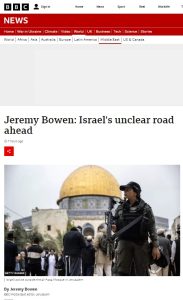
He continues with a description of a road trip that includes predictably romanticised descriptions of Palestinian farmers and extensive promotion of the notion that Israeli communities in Judea & Samaria – or ‘settlements’ as Bowen terms them – are the prime reason for the failure of the concept of a two-state solution, along with promotion of the ‘apartheid’ smear.
“Most of the world regards Israel’s settlement of occupied land as illegal. Amnesty International and Human Rights Watch are among a series of campaign groups that say Israel’s activities in the occupied territories amount to apartheid.
Israel denies this charge. It insists that international laws prohibiting a country from settling its own people on the land it occupies do not apply in the territories.”
Bowen again refrains from explaining that Judea & Samaria is part of the territory assigned by the League of Nations to the creation of a Jewish homeland and that was illegally occupied by Jordan in 1948. He makes no effort to explain the legal arguments of those (not only in Israel) who reject the claim that Israeli communities in Judea & Samaria are illegal.
Another factor claimed by Bowen to have a negative effect on the prospects for a two-state solution is “the most nationalistic right-wing government in Israel’s history”. He of course makes no mention of the repeated rejections of peace proposals over the years by Palestinian leaders (who, notably, are never described by the BBC as “nationalistic”, “right-wing” or anything else).
Towards the end of his article Bowen states:
“Settlement expansion is not the only reason why a dialogue between Palestinians and Israelis is impossible.
The United States, which sponsored talks in the past, has other preoccupations. It is much more concerned with its rivalry with China and the war in Ukraine.
The Palestinian political leadership is deeply divided between Hamas in Gaza and the Palestinian Authority on the West Bank. They are not capable, as things stand, of making or delivering any sort of deal. The Palestinian Authority is barely capable of exercising its own limited powers.”
The Palestinians have of course been “deeply divided” for many years and there is nothing novel about the fact that they are incapable of “making or delivering any sort of deal”. Not only can the Palestinians not present a united leadership to negotiate an agreement with Israel, but the more popular faction is a widely-designated terrorist organisation that opposes existing agreements, dismisses the idea of a two-state solution and rejects Israel’s very right to exist.
Remarkably, Bowen has nothing to say about Hamas’ efforts to undermine the Palestinian Authority in locations ostensibly under its control. Readers hence learn nothing about the smuggling of weapons into those areas or about Hamas’ practical and financial roles in the establishment, arming and direction of new and existing terror groups.
Bowen refrains from any serious discussion of relevant topics such as the Palestinian Authority’s loss of control in some areas, its failure to meet its Oslo Accords obligations to combat terrorism, internal political turmoil and the growing involvement of members of the PA security forces in terrorism and armed attacks.
He likewise completely avoids the wider issue of the collaboration between Hamas, Hizballah and Iran which is destabilising the region as a whole and feeding the “tensions” his article purports to discuss.
In short, all BBC audiences got from Jeremy Bowen’s latest trip to Israel was a superficial, predictable and uninformative article which employs the jaded tactic of blaming Israel – and especially Israeli ‘settlements’ – for the absence of any light at the end of the ‘peace process’ tunnel while erasing from the story Hamas’ ongoing efforts to destabilise the Palestinian Authority and thus put an end to any chance of negotiations with Israel.
Related Articles:
JEREMY BOWEN PROMOTES POLITICAL NARRATIVE IN BBC’S SIX DAY WAR CENTREPIECE
BBC ERASES HAMAS INCITEMENT FROM REPORT ON TEMPLE MOUNT INCIDENT
AN UNHELPFUL BBC BACKGROUNDER ON ‘ISRAELI-PALESTINIAN VIOLENCE’

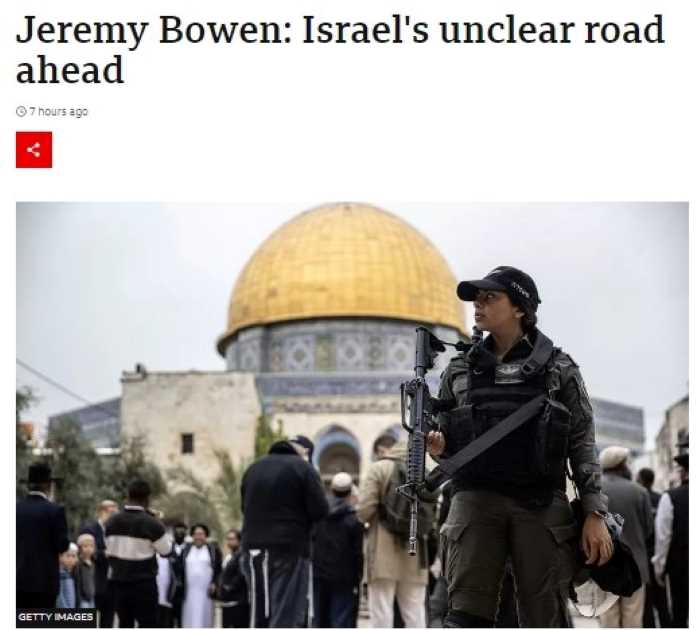
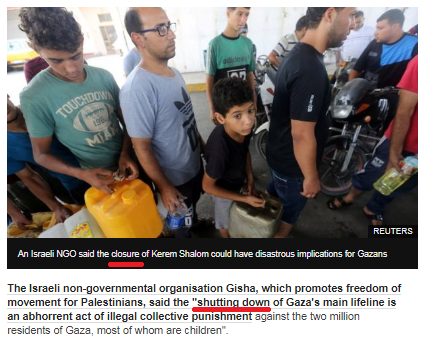
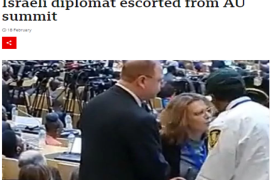


As usual the Israel Ministry of the Interior responsible for Borderl Controls lets in this scum bag who hates nationalist Zionist Jews. One wonders how he is permitted to enter and probably has a Israel Government Press Card certifying his ‘credentials”.
We must get the PMO who runs the GPO to deal with this clown more seriously